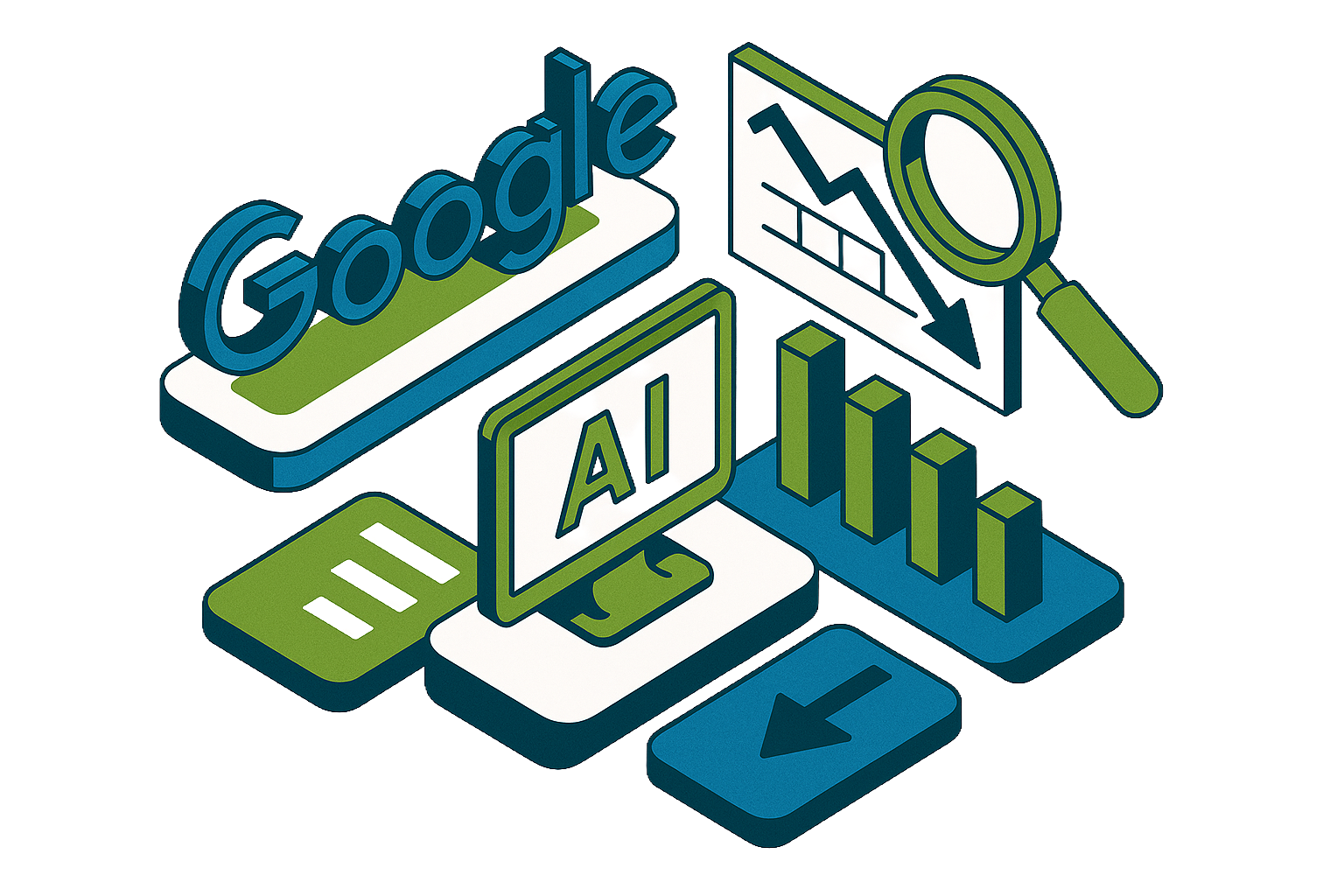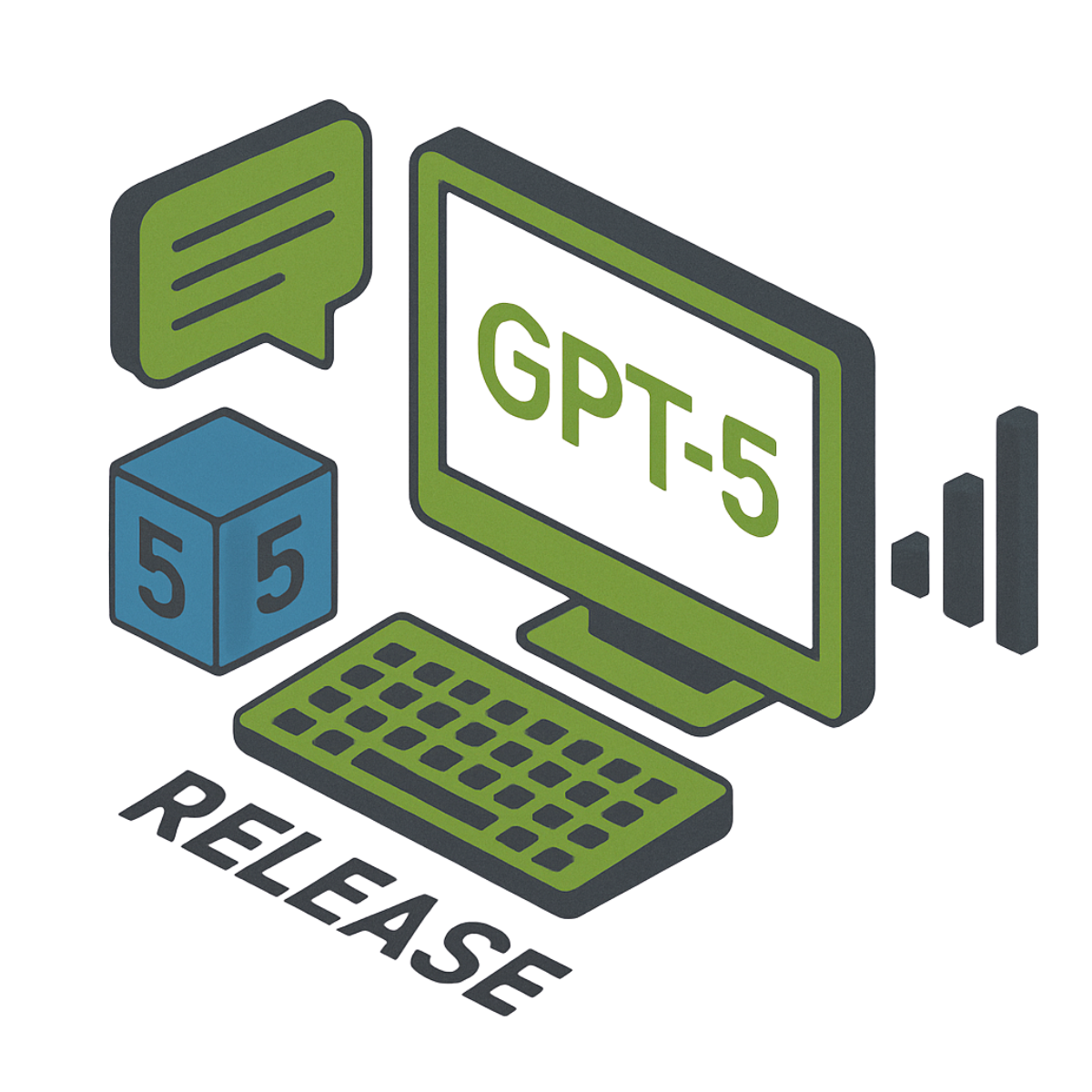Google’s Falling Search Share & the Rise of AI Search
For the first time in nearly a decade, Google’s global search market share slipped under 90%. Apple confirmed that Google search volume declined for...
4 min read
Christine Hollinden : Aug 13, 2025 4:43:03 PM

On August 6, 2025, Liz Reid, Google’s Vice President and head of Google Search, addressed a growing concern within the industry: are AI-powered search features cannibalizing website traffic?
In her official blog post, Reid rebutted the idea, stating that total organic click volume from Google Search has been “relatively stable” year-over-year. She added that Google is delivering not just clicks but “quality clicks,” visits where users are more engaged, spend more time on the page, and find the information more relevant.
Reid argued that AI Overviews, the company’s generative search feature, is not designed to replace the open web but to “highlight it.” According to Reid, AI Overviews prominently display links to their sources, encourage deeper research, and push billions of clicks to sites daily. She emphasized Google’s historical commitment to connecting users with the broader internet, describing AI search enhancements as an evolution, not a threat, to that mission.
Despite Google’s optimism, many remain unconvinced. Over the past year, industry analysts and analytics providers have noted changes in referral patterns that appear tied to the rise of AI search features.
Similarweb data shows that major news sites have experienced a multi-year decline in traffic from Google Search. For instance, some outlets have seen search referrals drop by 15–20% over three years.
Pew Research Center has documented the growing “zero-click” trend, where users get the answers they need directly from AI-generated summaries, without visiting the source site.
Forbes recently criticized Google’s reluctance to publish full datasets, arguing that the company’s “trust us” approach leaves firms guessing about the true impact of AI on traffic.
While these reports don’t prove causation, they illustrate a shift in search behavior. Firms across industries are starting to notice firsthand, especially those relying on search as a lead-generation channel.
The conversation around Google Search and AI’s impact isn’t just theoretical; it’s something we’ve experienced at Hollinden.
We’ve written before about the real data showing Google’s share of search is being eroded by tools like ChatGPT, Perplexity, and other AI platforms as people skip traditional search and go directly to AI for answers (read our perspective here).
A recent example came during a wave of CPA licensure reform across the United States. When Illinois announced significant changes, Hollinden quickly published an article outlining the updates. Thanks to speed, relevancy, and strategic formatting, our article appeared prominently in Google’s AI Overview results, leapfrogging industry publication and association sites.
That positioning didn’t happen by chance. It was the result of deliberate optimization aimed at AI-generated search responses. While Google may say AI Overviews aren’t reducing traffic, our experience and that of others suggest the reality is more complicated.
Central to Google’s defense is the concept of “quality clicks.” Reid defines these as visits where users are more satisfied with the content they land on. In practice, this may mean fewer overall visits but a higher proportion of visitors who stay longer and engage more deeply.
Skeptics point out that without transparent data, “quality” is a subjective metric. Are users truly more engaged, or are they simply arriving less often but staying longer because the AI Overview has already answered part but not all of their query? SEO experts advise firms to validate Google’s claims against their own analytics rather than relying solely on Google's assurances.
Whether or not AI Overviews reduce total clicks, search behavior is changing, and firms need to adapt their strategies accordingly. Two emerging disciplines are becoming essential:
Answer Engine Optimization (AEO) – Structuring content in a way that makes it more likely to appear directly in AI answers. This includes clear, concise Q&A formats, properly marked-up headings, and succinct summaries.
Generative Engine Optimization (GEO) – Crafting content that AI models are more likely to cite in their generative responses. This involves authority-building through credible sourcing, structured data, and original analysis.
Use schema markup to help AI and search engines interpret your content.
Incorporate clear, answer-ready sections to make your site a preferred citation source.
Publish original, in-depth content that goes beyond what an AI Overview can summarize.
Monitor search appearance analytics.
AI Overviews are changing click patterns; some firms are losing quick-answer traffic while others benefit from deeper, more qualified visits.
Google’s data remains incomplete to the public, so claims of “no traffic loss” can’t be independently verified.
Firms have two options: resist and risk being sidelined, or adapt and optimize for AI-driven discovery.
In short, the web’s search ecosystem is evolving, and so must your firm. Success will belong to those who embrace new visibility models rather than cling to old ones.
AI search isn’t just changing how people find information—it’s reshaping how firms win business online. Don’t wait for your web traffic to fall beyond the point of repair. Discover how Hollinden’s AI services can put you in front of your ideal clients, no matter how search evolves.
Not in full detail. Google says overall organic clicks are stable and “quality clicks” are up, but has not released comprehensive analytics or the methodology used to reach that conclusion.
Google defines a "quality click" as a click in which users find content more relevant and engaging and, therefore, spend a longer time on the page.
For some quick-answer queries, yes, users may get what they need without clicking. However, for more complex queries, AI Overviews can encourage additional exploration. Remember, AI Overviews are high-level summaries and often lack the necessary detail to fully answer the question.
Answer Engine Optimization is the strategy of structuring content to appear in AI-generated answers, increasing citation likelihood and visibility.
Use structured data, create concise Q&A content, publish original insights, and track AI Overview metrics in Google Search Console.
The Hollinden Point of View brings you monthly insights tailored to helping you grow your firm.

For the first time in nearly a decade, Google’s global search market share slipped under 90%. Apple confirmed that Google search volume declined for...

Throughout history, each wave of technological advancement—from the assembly line to automation—has reshaped industries. Now, artificial intelligence...

OpenAI has begun rolling out GPT‑5, the most advanced version of its flagship language model, across all ChatGPT accounts. With significant...